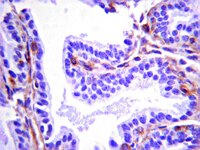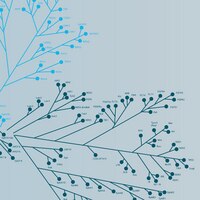14-618 Sigma-AldrichCD45 Protein, 10 µg
His6-tagged, recombinant, human CD45, amino acids 598-end, for use in Enzyme Assays.
More>> His6-tagged, recombinant, human CD45, amino acids 598-end, for use in Enzyme Assays. Less<<Recommended Products
Overview
| Replacement Information |
|---|
| Description | |
|---|---|
| Catalogue Number | 14-618 |
| Brand Family | Upstate |
| Trade Name |
|
| Description | CD45 Protein, 10 µg |
| Overview | His6-tagged, recombinant, human CD45, amino acids 598-end |
| References |
|---|
| Product Information | |
|---|---|
| Quality Level | MQ100 |
| Applications | |
|---|---|
| Application | His6-tagged, recombinant, human CD45, amino acids 598-end, for use in Enzyme Assays. |
| Key Applications |
|
| Physicochemical Information |
|---|
| Dimensions |
|---|
| Materials Information |
|---|
| Toxicological Information |
|---|
| Safety Information according to GHS |
|---|
| Safety Information |
|---|
| Storage and Shipping Information | |
|---|---|
| Storage Conditions | 6 months at -70°C |
| Packaging Information | |
|---|---|
| Material Size | 10 µg |
| Transport Information |
|---|
| Supplemental Information |
|---|
| Specifications |
|---|
| Global Trade Item Number | |
|---|---|
| Catalogue Number | GTIN |
| 14-618 | 04053252336102 |
Documentation
CD45 Protein, 10 µg SDS
| Title |
|---|
CD45 Protein, 10 µg Certificates of Analysis
| Title | Lot Number |
|---|---|
| CD45, active - 1641216-B | 1641216-B |
| CD45, active - 1641216-E | 1641216-E |









